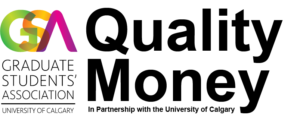
In May 2021, 215 Indigenous children were found buried at a Kamloops Residential School. Our hearts break with this news and cause us to reflect on the pain and suffering that the residential school system inflicted on families across Canada. It is a devastating example of the injustice faced by Indigenous peoples in this country. The GSA is committed to Indigenous engagement and contributing to reconciliation through education, awareness, supporting and amplifying the voices of Indigenous organizations that are doing important work in this area. We will remember these children and honour them by working harder in the area of Indigenous engagement and reconciliation.
Photo credit: Vancouver memorial for 215 children whose remains were discovered at a Kamloops residential school. Photo by GoToVan published on Flickr under Creative Commons Licence
The GSA and the EDI Committee are committed to advocating on behalf of equity seeking groups including women, Indigenous peoples, racialized individuals, persons with disabilities, and LGBTQ2S+. During the National Indigenous History Month, the GSA will share information and resources to help you learn and understand the Indigenous peoples’ history and current challenges in Canada.
About the National Indigenous History Month:
June is National Indigenous History Month when Canadians honour the history, heritage and diversity of Indigenous peoples in Canada. It is also an opportunity to reflect on the injustices done to Indigenous communities due to colonization and residential school system, and to take actions to amplify the voices of Indigenous organizations that are doing important work in this area.
Source: Government of Alberta
The GSA encourages UCalgary graduate students and the community to learn about Indigenous peoples’ history, engage in conversations on Indigenous peoples’ history, heritage, suffering, and current challenges, and to take actions by sharing, donating, and advocating on their behalf.
Learn about Indigenous peoples’ history in the following resources:
- Taking a course or attend workshops:
- Indigenous Learning from the University of Calgary: https://www.ucalgary.ca/indigenous/learning
- The University of Alberta offer a MOOC course on Indigenous History for free
- Reading books: Follow this #IndigenousReads book list recommended by the Government of Canada to learn about Indigenous cultures and history
- Learn how to write a land acknowledgement
- Visit a museum or historical sites:
- Calgary Heritage Park’s 1860s Fur Trading Fort and First Nations Encampment (heritagepark.ca)
- Tsuu T’ina Cultural Museum (tsuutinamuseum.com)
- Blackfoot Crossing Historical Park (blackfootcrossing.ca)
- Head-Smashed-In Buffalo Jump World Heritage Site (headsmashedin.ca)
- Learn more about different Indigenous sites you can visit here: Indigenous Tourism Alberta (indigenoustourismalberta.ca)
Engage in conversations about Indigenous peoples’ history, culture, and current challenges:
- Attend events and discussions put on by the University of Calgary and Indigenous students’ groups: https://www.ucalgary.ca/indigenous
Take action to spread the word about the National Indigenous History Month:
- Share resources and information about the National Indigenous History Month and the Indigenous People’s History
- Donate to local Indigenous groups such as Stardale Women’s Group (stardale.org), Supporting Aboriginal Graduate Enhancement (SAGE) – UCalgary Chapter, Alberta Indigenous Mentorship in Health Innovation (AIM-HI) Network, Awo Tann Healing Lodge Society, and Aboriginal Friendship Society of Calgary


